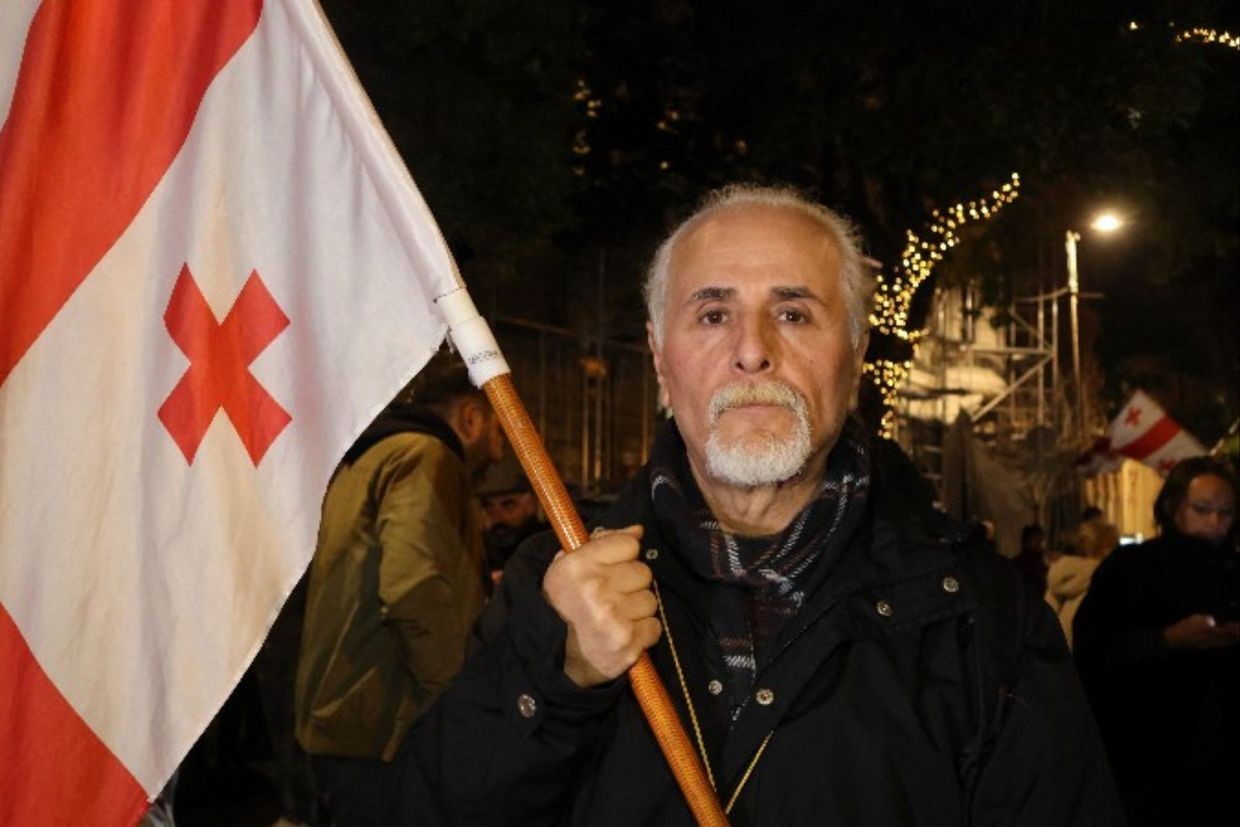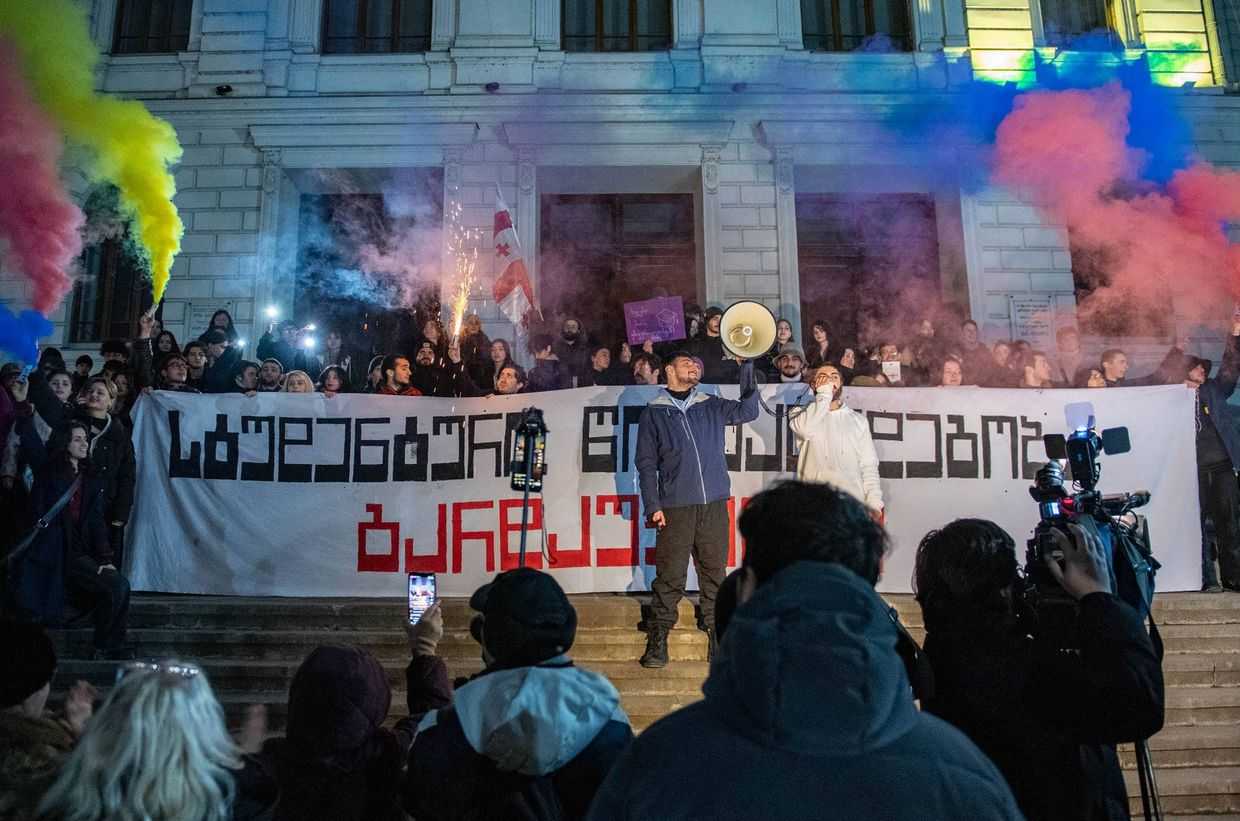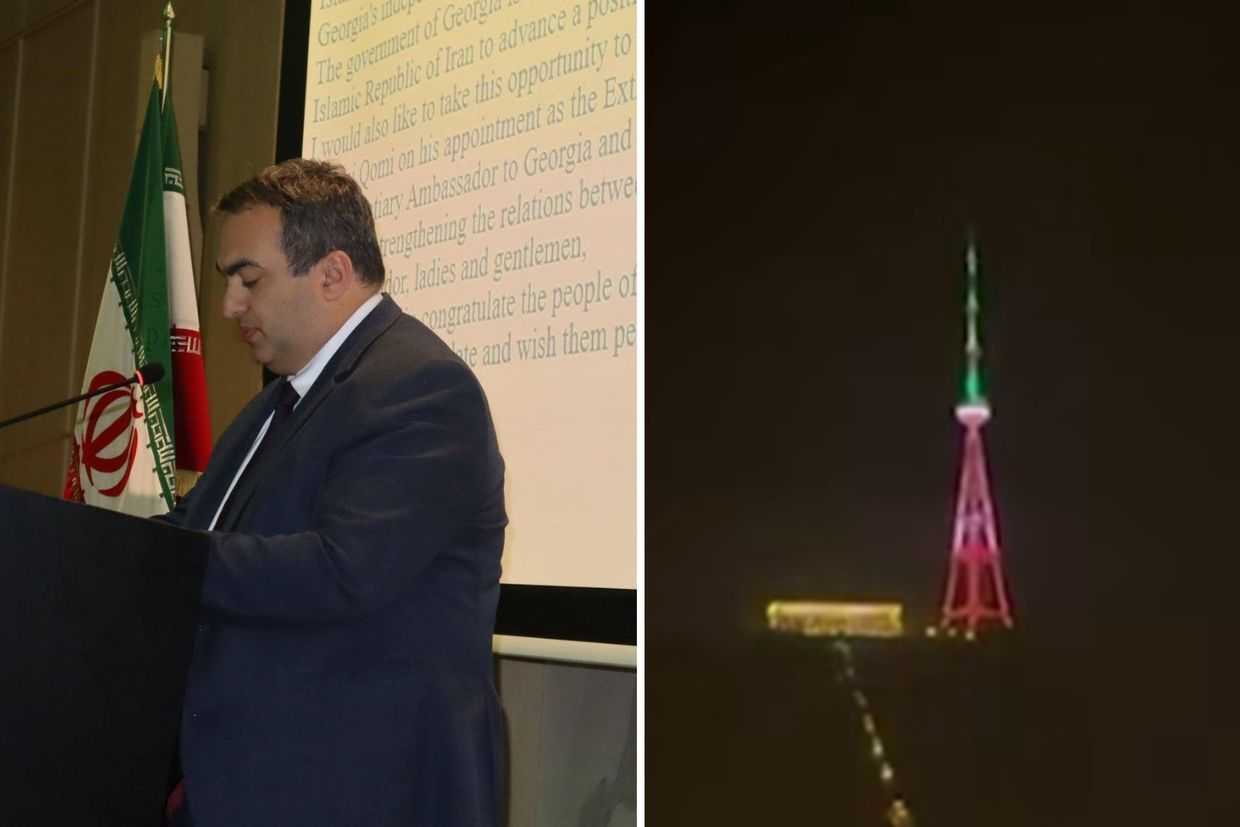
The Tbilisi Court of Appeals has rejected activist Temur Katamadze’s request for asylum or humanitarian status. A Turkish citizen and descendant of Georgian Muslims deported in the 19th century, Katamadze was detained during protests in Batumi and now faces deportation to Turkey, where he says he risks imprisonment on fabricated charges.
The Court of Appeals rejected Katamadze’s request on Tuesday, upholding the 18 March decision by the Tbilisi City Court. Had it been granted, the status would have allowed him to legally remain in Georgia, where he now has no other legal grounds to stay, having in the past years been denied both citizenship and residency.
Mariam Gabroshvili, a lawyer with the Georgian Young Lawyers’ Association (GYLA), told OC Media on Wednesday that following the court’s decision, the Interior Ministry has already issued Katamadze a deportation order, giving him 10 days to leave the country voluntarily. However, the decision can still be appealed in both city and appellate courts.
Born in Istanbul, Turkey, 56-year-old Katamadze is a descendant of Georgian Muslims who were deported from the Russian Empire to the Ottoman Empire in the 19th century. He previously said that he has been living in Georgia since 2012 and, despite many attempts, still does not have Georgian citizenship.
During the ongoing protests against the government’s EU U–turn, Katamadze became known as the ‘flag-bearer grandpa’ for his active participation in demonstrations in Batumi with the Georgian flag in his hands.
He was first administratively detained during a protest on 11 January and sentenced to five days in detention for allegedly disobeying police orders.
After his release from administrative detention, the activist was re-arrested just minutes later on the grounds that he had no legal basis to remain in Georgia. The Interior Ministry subsequently requested his deportation.
On 17 January, the activist began a hunger strike in protest. The next day, the court sentenced him to three months in prison, which he served in a temporary detention centre for foreigners in Tbilisi until the issue of his deportation from the country was resolved. He stopped the hunger strike after 48 days.
‘The basis for his detention was the claim that he posed a flight risk before deportation’, Gabroshvili said.
‘How justified that claim is, it’s hard to say — we’re talking about someone who became known precisely because of his visible activism and participation in protests [...] If he intended to hide, he wouldn’t have been regularly attending demonstrations’, she added.
Katamadze claimed that during his first detention, he was physically assaulted by Batumi police chief Irakli Dgebuadze and 10 other officers, with Dgebuadze reportedly telling him, ‘You dog and Turk, what do you want in Georgia? Get out of here’.
Katamadze has said that during his four decades in Turkey, he was dedicated to ‘preserving Georgian identity, language, and culture, and passing it on to future generations’. According to RFE/RL, he advocated for the right of ethnic Georgians in Turkey to receive education in their native language, collaborated with a Georgian-language magazine, participated in cultural events, and launched a Georgian-language news page.
He says he moved to Georgia in 2012 to advocate for the rights of ethnic Georgians from Turkey, Iran, and Azerbaijan — people he says have been denied citizenship by the Georgian authorities. Katamadze himself was denied Georgian citizenship in 2012, 2015, and 2019, though he was granted a six-year residence permit in 2013. He has challenged the denials multiple times in vain.
In a social media post written while in prison, Katamadze emphasised that he has often publicly criticised the ruling Georgian Dream party for what he called its ‘discriminatory policies’ toward ethnic Georgians abroad and the consistent refusal to grant them citizenship. Since Georgia’s disputed 2024 elections and the government’s withdrawal of its EU membership bid, he has taken to the streets in protest.
Katamadze says he is in danger in Turkey
According to Katamadze’s lawyer, his client discovered in 2023 through email correspondence with the Turkish Embassy that a detention warrant had been issued for him in Turkey. While he has not been officially informed of the reason, Katamadze believes, based on his own sources, that the case may be linked to alleged ties with the late Turkish cleric Fethullah Gülen’s movement — whom the Turkish government blames for the attempted coup in 2016.
The Erdoğan government’s crackdown on the Gülen movement has extended to Georgia as well. In 2017, Turkey requested the extradition of Mustafa Emre Çabuk, a Turkish teacher and manager residing in Georgia, and voiced dissatisfaction with the presence of allegedly Gülen-affiliated schools in the country — many of which were later shut down by Georgia’s Education Ministry, officially for unrelated reasons.
‘[Katamadze] has never been a member of that group, nor does he share its views’, Gabroshvili told OC Media. However, she noted that while working for a company in Batumi, Katamadze often interacted with people affiliated with the movement, and eventually formed friendships with some of them.
Gabroshvili said Georgian courts rejected the defence’s argument that these ties could put Katamadze’s life and freedom at risk in Turkey.
‘We presented evidence that even lawyers who defended people associated with the movement were arrested in Turkey’, she said.
‘But unfortunately, neither the lower court nor the appellate court accepted our position’.
According to his lawyer, Katamadze believes the persecution he faces in Turkey is tied to his activism defending the rights of ethnic Georgians.
Katamadze’s legal team will decide whether to continue the legal battle for his stay in Georgia after further consultations with him.








![Baia Margishvili standing in central Tbilisi with a sign reading: ‘The Prosecutor’s Office [is] a punitive squad. How many more innocent people will you put in prison?’ Photo: Mariam Nikuradze/OC Media.](/_next/image/?url=https%3A%2F%2Fassets.bucket.fourthestate.app%2Foc-media-prod%2Fcontent%2Fimages%2F2026%2F02%2Fcalls-for-sanctions-and-raids-19-10-25-48.jpg&w=3840&q=50)


